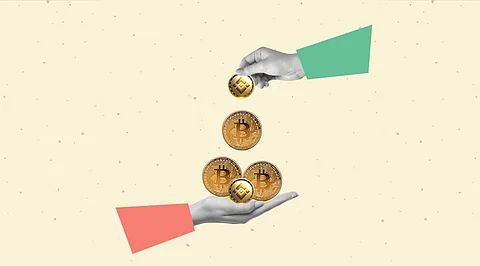
- Insights
- Cryptocurrencies
- Stocks
- White Papers
- Industry
- Geography
- Insights
- Cryptocurrencies
- Stocks
- White Papers
- Industry
- Geography


Intro: Crypto tokens are digital assets that are built on the blockchain of another cryptocurrency. A blockchain is a digital ledger that stores information in linked blocks. This data can be transaction records or full-fledged programmes that run on the blockchain, known as smart contracts.
A crypto token is a representation of an asset or interest that has been tokenized on the blockchain of an existing cryptocurrency. Many similarities exist between Crypto tokens and Cryptocurrencies, but cryptocurrencies are intended to be used as a medium of exchange, a means of payment, and a measure and store of value. The purpose of Crypto tokens includes DeFi functionality, blockchain-specific crypto services, and even games depending on blockchain. There are various Types of Crypto Tokens, each with unique properties based on usage. They are Platform Tokens, Transactional Tokens, Utility Tokens, Security Tokens, Governance Tokens, Non-Fungible Tokens.
Let's discuss more about Crypto Tokens, it's applications and how do they work:
Crypto tokens are frequently used as transactional units on blockchains that are built using standard templates, such as the Ethereum network, which allows users to create tokens. Such blockchains operate on the principle of smart contracts or decentralised applications, in which programmable, self-executing code is used to process and manage the various transactions that take place. Every cryptocurrency token represents a tradable good. This can include coins, points, certificates, in-game items, and so on. This means that crypto tokens can be used to represent a company's stock or as voting rights in the central committee. They are frequently used to raise funds through a crowdsale. That is why they are commonly referred to as cryptocurrency assets, crypto assets, and crypto equity.
Tokens created by the Ethereum Code may be frozen in the event of a hack or a government regulation. This means that no cryptocurrency tokens are movable until the unfreezing happens. Transactions involving a crypto token are processed on the blockchain. For example, if it's an ERC-20 token built on Ethereum, all transactions for that token will be handled by the Ethereum blockchain. Hundreds of thousands of ERC-20 and ERC-721 tokens exist in the crypto ecosystem. New tokens are created on a regular basis to meet the increasing demands and use cases of each blockchain, and the creation of new tokens is not expected to stop anytime soon.
Token creators frequently use "smart contract" technology to create digital assets while maintaining the decentralisation of their project. Smart contracts, which were first introduced on Ethereum, are programmes that can perform a variety of tasks without the assistance of a third-party intermediary. Instead of relying on centralised authorities, smart contracts analyse blockchain conditions and respond in accordance with their programming. Smart contracts are used by Web3 developers to create and record "token contract addresses," which contain all of the necessary information about a token's supply and issuance schedule. For example, SAND is a cryptocurrency token built on the Ethereum blockchain. It is the primary form of currency in The Sandbox metaverse. SAND tokens are used by gamers to purchase virtual items, play games, and invest in digital property. Anyone can view SAND token transaction data and statistics by entering its token contract address into an Ethereum browser.
Crypto tokens are valuable assets because they are cryptocurrencies. They are typically transferable, tradeable, buyable, and sellable, and are stored in blockchain wallets. A blockchain wallet is a software or hardware device that stores cryptocurrency.
Crypto tokens can be used for a variety of purposes aside from currency. Here are some of the most common applications for crypto tokens:
